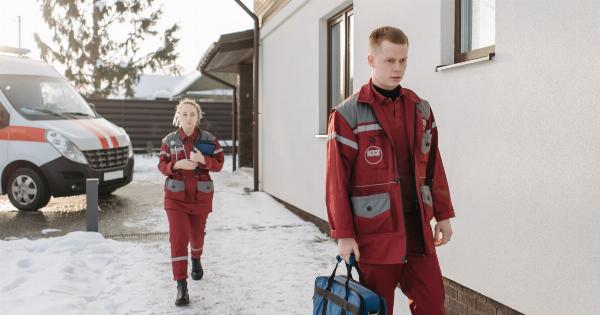The Union of Pulmonologists is one of the most respected medical organizations in the world. This elite group of doctors specializes in the treatment of respiratory diseases, including asthma, chronic obstructive pulmonary disease, and pneumonia.
Recently, the Union of Pulmonologists launched a new initiative called the Rescue Mission. This program is designed to help patients with severe respiratory illnesses receive the care that they need, regardless of their financial situation.
What is the Rescue Mission?
The Rescue Mission is a comprehensive program that provides patients with respiratory illnesses access to specialized medical care, medications, and equipment.
The program is designed to help those who have struggled to receive adequate medical care because of their financial situation.
Patients who participate in the Rescue Mission receive personalized treatment plans developed by pulmonologists who specialize in respiratory diseases.
These treatment plans are designed to help patients manage their symptoms and improve their overall quality of life.
In addition to developing treatment plans, the Rescue Mission also provides patients with access to affordable medication and equipment.
Patients receive the medications and equipment they need to manage their symptoms at home, which can help them avoid costly hospital stays.
Who is eligible for the Rescue Mission?
Patients with severe respiratory illnesses who are unable to afford medical care are eligible for the Rescue Mission.
Patients must be referred to the program by their primary care physician, and they must meet certain income and medical criteria to be accepted into the program.
The Union of Pulmonologists works closely with individual patients to determine their eligibility for the Rescue Mission.
Patients who are accepted into the program receive personalized treatment plans based on their medical history, symptoms, and financial situation.
How does the Rescue Mission work?
The Rescue Mission is a multi-step program that begins with an in-person evaluation with a pulmonologist who specializes in respiratory diseases.
During this evaluation, the pulmonologist will review the patient’s medical history, perform a physical examination, and order any necessary tests to develop a comprehensive treatment plan.
Once the treatment plan has been developed, the patient will receive access to affordable medications and equipment that can help them manage their symptoms at home.
Patients will also have access to ongoing care from the pulmonologist who developed their treatment plan.
The Rescue Mission also provides patients with access to educational resources that can help them better understand their respiratory illness.
These resources include information on lifestyle changes that can help manage symptoms, as well as informational materials on the different medications and equipment that may be used in their treatment plan.
Why is the Rescue Mission important?
Respiratory illnesses can be extremely debilitating and often require ongoing medical care. Unfortunately, many patients with severe respiratory illnesses are unable to afford the medical care and medications they need to manage their symptoms.
The Rescue Mission is important because it provides patients with access to essential medical care that they may not have access to otherwise.
By providing patients with affordable medications and equipment, the Rescue Mission can help reduce hospital visits and improve overall quality of life for patients.
How can patients apply to the Rescue Mission?
Patients who believe they may be eligible for the Rescue Mission should speak with their primary care physician.
If their physician believes they may benefit from the program, they can refer them to a pulmonologist who specializes in respiratory diseases.
The pulmonologist will then evaluate the patient and determine if they are eligible for the program.
If they are, the pulmonologist will develop a personalized treatment plan that takes into account the patient’s medical history, symptoms, and financial situation.
Patients who are accepted into the Rescue Mission will receive ongoing care and support from their pulmonologist, as well as access to affordable medications and equipment that can help them manage their symptoms at home.
Conclusion
The Rescue Mission is an important initiative launched by the Union of Pulmonologists to help patients with severe respiratory illnesses receive the care that they need, regardless of their financial situation.
Patients who participate in the program receive personalized treatment plans, access to affordable medications and equipment, and ongoing care from pulmonologists who specialize in respiratory diseases.
By providing patients with the medical care and support they need to manage their symptoms, the Rescue Mission can help improve overall quality of life for patients with respiratory illnesses.





























